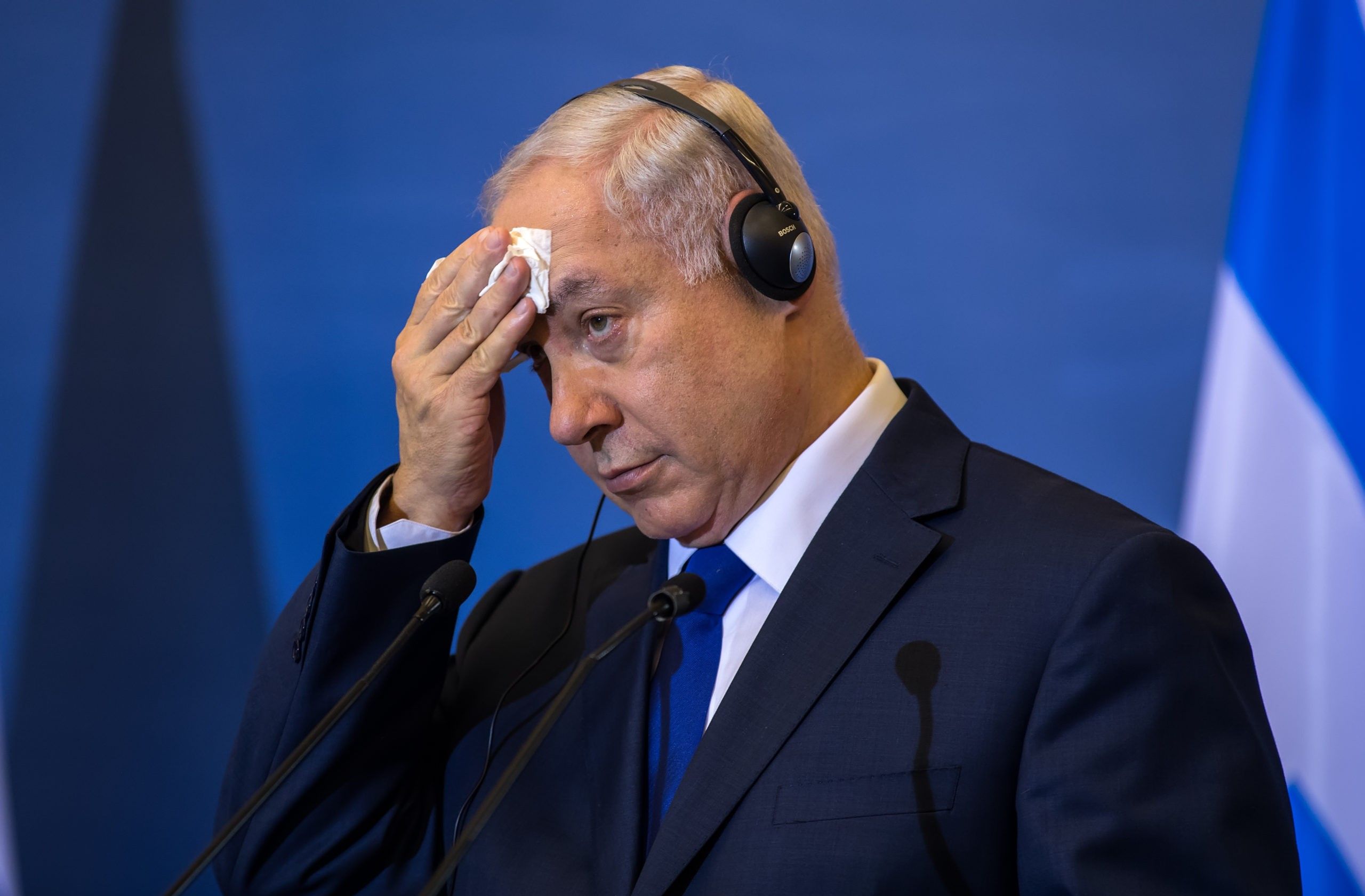The prosecutor of the International Criminal Court announced Monday that his office will seek arrest warrants for several Israeli and Palestinian leaders, including Israeli Prime Minister Benjamin Netanyahu, for alleged war crimes committed during the Gaza war.
If the warrants are approved by the ICC, Netanyahu and his Defense Minister Yoav Gallant will face charges of starving civilians, intentional attacks on innocents, and other aspects of what Prosecutor Karim Khan described as “a widespread and systematic attack against the civilian population of Gaza.”
Hamas leaders, for their part, could face charges of hostage taking, rape, and intentionally killing civilians. Khan is seeking arrest warrants for Hamas chief Yahya Sinwar, military boss Mohammed Deif, and politburo leader Ismail Haniyeh.
The warrants would dramatically reduce freedom of movement for Netanyahu and Gallant, who could no longer step foot in roughly half of the world’s countries without facing arrest. Parties to the ICC include nearly all of Europe and Latin America, as well as Canada, Australia, Japan, and much of Sub-Saharan Africa.
Those restrictions will be more familiar for Hamas leaders, who have historically only traveled to friendly or neutral countries like Russia, China, Iran, and Qatar, none of which are parties to the Rome Statute, the international agreement that underpins the ICC.
The decision over whether to issue a warrant now goes to the ICC’s pre-trial chamber, which could take several months to make a decision, according to Just Security. Only one publicly known request for a warrant has been denied by this chamber, suggesting that the charges are likely to move forward.
ICC states have sometimes chosen not to arrest leaders facing charges out of political convenience, usually justified as a result of special diplomatic immunity. Such was the case for former Sudanese leader Omar al-Bashir, who traveled freely to South Africa and Jordan while serving as president despite an outstanding warrant.
But, in 2019, an ICC appeals court ruled against this immunity doctrine, making it more difficult to justify any attempt to avoid arresting Netanyahu, Gallant, or the Hamas leaders.
Netanyahu recently argued that an arrest warrant against him and other Israeli officials would represent an “unprecedented antisemitic hate crime” and “a distortion of justice and history.”
Israeli leaders argue that their campaign has been proportional to the threat posed by Hamas and that any civilian casualties are due to militants’ use of civilians as “human shields.” But legal experts and human rights NGOs have found numerous examples of alleged war crimes committed by Israeli soldiers and political leadership.
The potential charges put the United States in a difficult place. While the U.S. never ratified the Rome Statute, it endorsed the court’s 2023 decision to bring charges against Russian President Vladimir Putin for alleged war crimes in Ukraine.
While Secretary of State Antony Blinken said recently that the Israel Defense Forces (IDF) have likely violated international law in their campaign, the U.S. maintains that Israel can hold its own troops accountable for any alleged war crimes. American leaders have reportedly worked with Israeli officials in an attempt to stop the charges.
The potential charges are likely to spark furor in Congress. In a recent open letter, ten GOP senators threatened to retaliate against the ICC for any charges brought against Israeli officials.
“If you issue a warrant for the arrest of the Israeli leadership, we will interpret this not only as a threat to Israel’s sovereignty but to the sovereignty of the United States,” the lawmakers wrote, making reference to a U.S. law that authorizes “all means necessary” to prevent any “U.S. or allied personnel” from facing prosecution.
“Target Israel and we will target you,” the letter continued, threatening sanctions against ICC officials. Signatories include Sen. Tom Cotton (R-Ark.) — a top candidate for Defense Secretary if Donald Trump wins election this fall — as well as Senate Minority Leader Mitch McConnell (R-Ky.).
The senators argued that any warrants against Israeli officials would be “illegitimate and lack legal basis.”
But international law experts disagree. A panel including famed international lawyer Amal Clooney and a former legal adviser to Israel’s foreign ministry “unanimously endorsed” the decision to bring charges.
- With world's focus on Gaza, West Bank conflict brews ›
- Awkward: Will George Clooney have to choose, Biden or Amal? | Responsible Statecraft ›
- Gantz Quits the War Cabinet: Sizzle or Fizzle? | Responsible Statecraft ›
- Bibi's bully visits to Congress never end well | Responsible Statecraft ›
- Report: Israelis using Gaza civilians as human shields | Responsible Statecraft ›
- ICC issues arrest warrants for Netanyahu, Galant | Responsible Statecraft ›
















